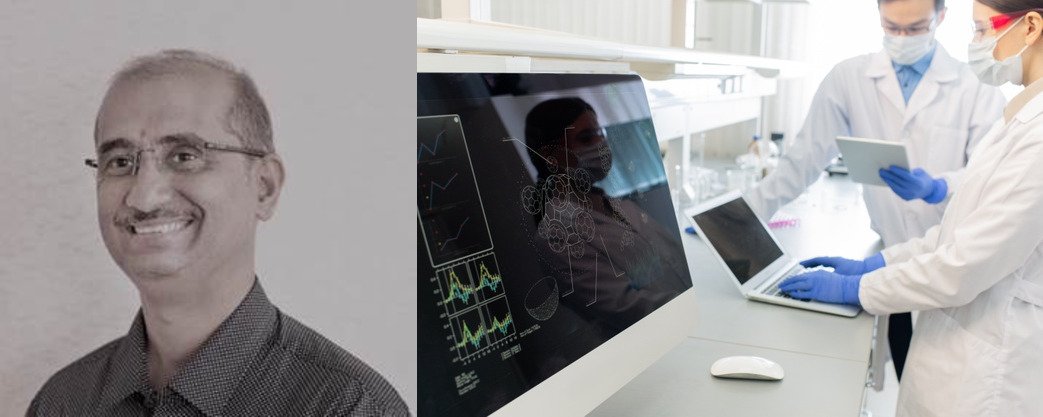
The healthcare industry is becoming increasingly information-driven. Smart machines are creating a positive impact to enhance capabilities in healthcare and R&D. Promising technologies are aiding healthcare staff in areas with limited resources, helping to achieve a more efficient healthcare system. Yet, with all its benefits, using data to deliver more value-based care is not without risks. Krishna Prasad Shastry, Chief Technologist (AI Strategy and Solutions) at Hewlett Packard Enterprise shares further details on the establishment of a decentralized machine learning framework while ensuring compliance with data governance regulations.
Technology will be indispensable in the future of healthcare, with advancements in various technologies such as artificial intelligence (AI), robotics, and nanotechnology. Machine learning (ML) – a subset of AI – now plays a key role in many health-related realms, such as disease diagnosis. For example, ML models can assist radiologists to diagnose diseases, like Leukaemia or Tuberculosis, more accurately and more rapidly. By using ML algorithms to evaluate imaging such as chest X-rays, MRI, or CT scans, and applying ML to analyse medical imaging, radiologists can better prioritise which potential positive cases to investigate. Similarly, ML models can be developed to recommend personalised patient care, by observing various vital parameters, sensors, or electronic health records (EHRs). The efficiency gains that ML offers stand to take the pressure off the healthcare system – especially valuable when resources are stretched and access to hospitals and clinics are disrupted.
Data underpins these digital healthcare advancements. Healthcare organisations globally are embracing digital transformation and using data to enhance operations. Yet, with all its benefits, using data to deliver more value-based care is not without risks. For example, using ML for diagnostic purposes requires a diverse set of data in order to avoid bias. But, access to diverse data sets is often limited by privacy regulations in the health sector. Healthcare leaders face the challenge of how to use data to fuel innovation in a secure and compliant manner.
For instance, HPE’s Swarm Learning, a decentralized machine learning framework allows insights generated from data to be shared without having to share the raw data itself. The insights generated by each owner in a group are shared, allowing all participants to still benefit from the collaborative insights of the network. In the case of a hospital that’s building an ML model for diagnostics, Swarm Learning enables decentralized model training that benefits from access to insights of a larger data set, while respecting privacy regulations.
Partnering with stakeholders across the public and private sectors will enable us to better provide patients access to new digital healthcare solutions that can reform the management of challenging diseases such as cancer. Our recent partnership with AstraZeneca, under their A. Catalyst Network aims to drive healthcare improvement across Singapore’s healthcare ecosystem. Further, Swarm Learning can reduce the risk of breaching data governance regulations and can accelerate medical research.
The future of healthcare lies in working in tandem with technology; innovations in the AI and ML space are already being implemented across the treatment chain in the healthcare industry, with successful case studies that we can learn from. From diagnosis to patient management, AI and ML can be used to perform tasks such as predicting diseases, identifying high-risk patients, and automating hospital operations. As ML models are increasingly used in the diagnosis of diseases, there is an increasing need for data sets covering a diverse set of patients. This is a challenging demand to fulfill due to privacy and regulatory restrictions. Gaining insights from a diverse set of data without compromising on privacy might help, as in Swarm Learning.
AI models are used in precision medicine to improve diagnostic outcomes through integration and by modeling multiple data points, including genetic, biochemical, and clinical data. They are also used to optimise and accelerate clinical decision-making for evidence-based medicine. In the sphere of life sciences, AI models are used in areas such as drug discovery, drug toxicity prediction, clinical trials, and adverse event management. For all these cases, Swarm Learning can help build better models by collaborating across siloed data sets.
As we progress towards a technology-driven future, the question of how humans and technology can work hand in hand for the greater good will remain a question to be answered. But I believe that we will be able to maximise the benefits of digital healthcare, as long as we continue to facilitate collaboration between healthcare and IT professionals to bridge the existing gaps in the industry.




